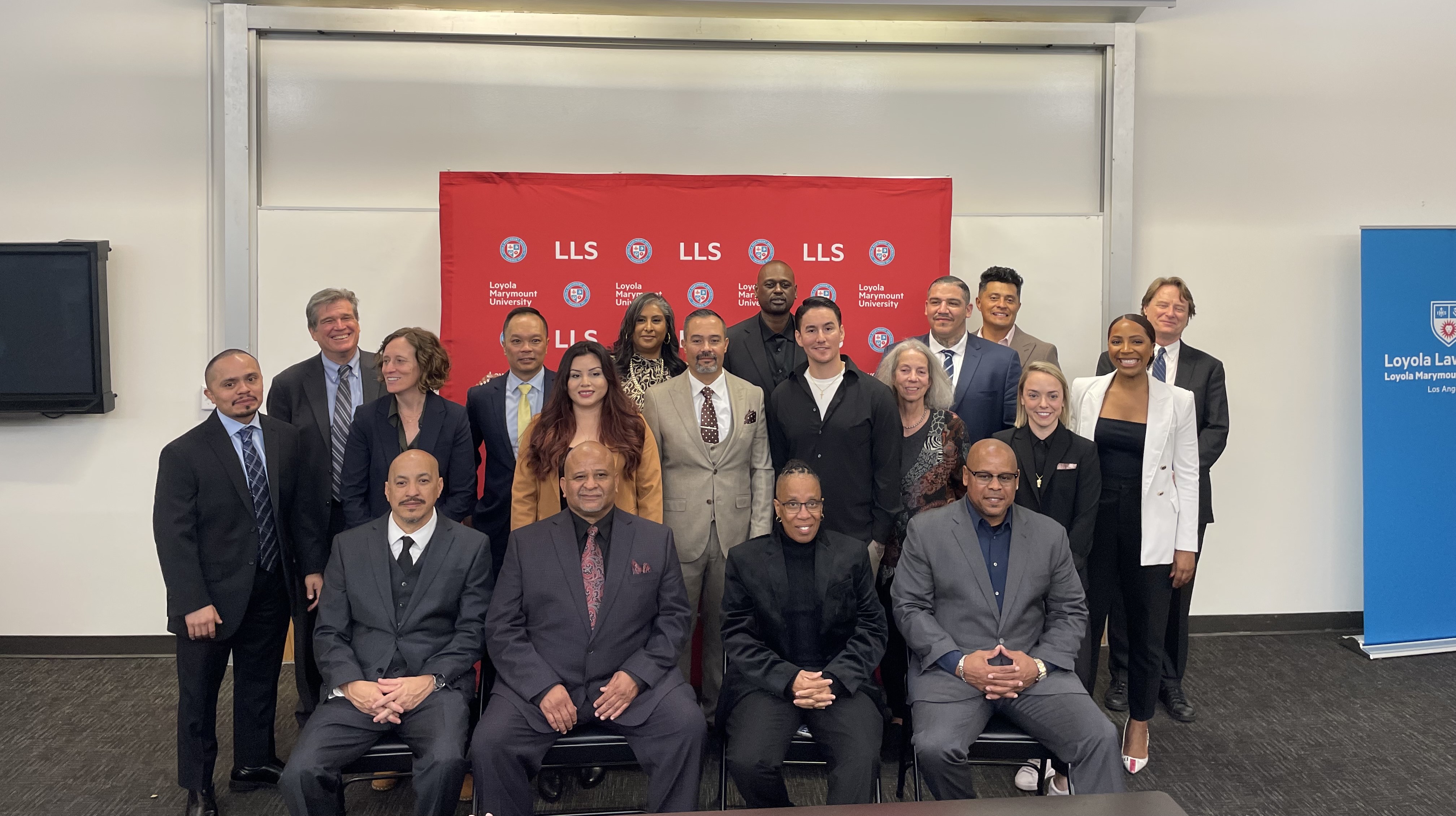The 2023 cohort of the Center for Juvenile Law and Policy's Independent Forensic Gang Expert College (IFGEC) celebrated its graduation on January 20, 2024. 15 participants finished a comprehensive 6-week course in the law, rules of evidence, and court procedure taught by practicing attorneys and Loyola Law School faculty. IFGEC received a record number of over 50 applicants this year.
"This is the first year we’ve had participants from all over California, not just Los Angeles. We’ve had formerly gang-involved individuals from San Diego, Orange County and Fresno in this cohort. Even though everyone is from different places and comes from different backgrounds, they all agree that kids are pushed into gang involvement by untreated trauma, poverty, violence in the home, and police misconduct," says Professor Sean Kennedy (LMU '86, LLS '89), Kaplan & Feldman Executive Director of the Center for Juvenile Law and Policy (CJLP) and founder of the Independent Forensic Gang Expert College.
Most of the program participants are formerly incarcerated ex-gang members. The 6-week course at LLS trains these individuals to provide expert testimonies in legal proceedings to contextualize a youth’s gang involvement, explain how it happens, and why it might happen. The course culminated in a rigorous exam process with cross-examinations and mock trials conducted by clinic students in the Juvenile Innocence and Fair Sentencing Clinic.
The Independent Forensic Gang Expert College was founded in 2020 with the mission to train people with former gang involvement to become gang expert witnesses for juveniles charged with gang offenses and gang enhancements. "It’s only members of law enforcement testifying in court about why young people get involved in gangs. I hope these experts can go into courtrooms and give a different point of view from their own lived experiences, and represent those young people on trial honestly," says Professor Sean Kennedy.
The hope is that with better context, the jury and the judge might make a fair assessment of the circumstances, and choose not to prosecute a youth as an adult, or send them to juvenile hall instead of an adult prison.
In the late 80's and 90's during the tough-on-crime era in California, there was mass criminalization and incarceration of many black and brown youth. They were labeled as 'superpredators' and incapable of rehabilitation. The gang college fosters a new generation of forensic gang experts, unaffiliated with law enforcement and the failed punitive suppression measures of this past generation. This third cohort adds to a growing group of courtroom experts who are at the forefront of criminal justice reform, alongside the clinic directors and faculty of Loyola Law School.
When asked about this program's future, Kennedy says he hopes to create a train-the-trainers model to replicate IFGEC all across the country. "We have people from all over the United States calling Loyola Law School, asking if they can attend this college. The problem is each state has it’s own legal system and it's own laws. The train-the-trainers program would invite people from all across the country in cities like Chicago, Miami and New York City, to come and learn how to build their own gang college for their own jurisdiction and their own state. And hopefully we can replicate this program nationwide."
To learn more about the Independent Forensic Gang Expert College, please visit here.
